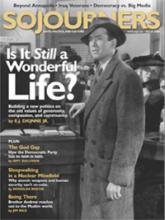When I first entered politics in the late 1960s, I had never heard the term “evangelical.” If I did, I certainly didn’t know what it meant. Now it’s a word you hear everywhere—in the news and at political rallies, on college campuses, and even in Hollywood. You especially hear the word in religious circles. However, it is not by happenstance that this word has become so commonplace. “Evangelical” has changed from being an adjective that describes a kind of activity to a noun that defines a particular kind of person. That change is powerfully chronicled in D. Michael Lindsay’s Faith in the Halls of Power.
This well-written history of the rise of evangelicals in American society provides a scholarly account of the motives and methods of how this new religious movement has reached the peaks of power in politics, academia, business, media, and philanthropy. The book is thorough and full of facts, outlining what makes a person evangelical and how evangelicals have acquired so much influence. Lindsay describes how certain individuals in the past 30 years thoughtfully targeted areas of power, devised plans to infiltrate particular leadership circles, and then implemented networks that often took years or decades to mature. Lindsay interviewed more than 360 influential people in pursuit of his answers, and he delivers a clear picture of how evangelicals have become a dominant force in the United States.
Read the Full Article
